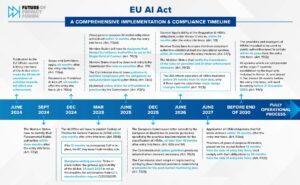A US Privacy Leader
Two weeks ago in Jerusalem at the annual conference of Data Protection Commissioners, Assistant Secretary of Commerce Larry Strickling announced that Commerce Department would be calling for the creation of a new US privacy office.
Here is how Strickling described the role:
” In the area of privacy, I believe that the U.S. Government should establish a Privacy Policy Office to serve as a center of information privacy expertise. This Office would complement, not supplant, the Federal Trade Commission or the other institutions in the Federal Government, such as the professional cadre of Chief Privacy Officers we now have in multiple agencies. A key role for the new Privacy Office would be to bring together the many different parties that are necessary to help develop privacy practices. This institutional commitment to engage on information privacy issues in a dynamic, multi-stakeholder manner over the long term would do more than just help voluntary industry codes to develop. It would also be an important vehicle to help us better engage with all of you to address the privacy issues that we’re all confronting.”
We at the Future of Privacy Forum were delighted because we have been advocating for the Administration to do just this! Item number one on our “Agenda for the New Administration” was as follows: Appoint a Chief Privacy Officer to Promote Fair Information Practices in the Public and Private Sectors.
Here is what we said: “We embrace the idea of government catching up to industry by creating the central role of a Chief Technology Officer, as has been announced. But we also point out the need — recognized by hundreds of privacy-sensitive companies — for a senior level Chief Privacy Officer, someone to ensure that data protection is a central consideration for technology, data and policy decisions. Although many federal agencies have privacy officers, the fact that data is increasingly available across government entities demonstrates the need for a central figure to lead U.S. efforts to respect citizen data. To ensure that the data needed to combat terror will be available while appropriate oversight is in place to protect essential freedoms, the Administration should have an accountable, executive-level figure to drive an agenda based on responsible data practices. And as behavioral targeting, correlation of data across platforms, cloud computing and the use of personal health records becomes widespread in the business world, the need for a senior figure who can drive a consumer-centric agenda based on Fair Information Practices becomes increasingly crucial.
As data flows have already become a global issue, an empowered central address for U.S. data protection will also more effectively allow the U.S. to engage with data authorities around the world.”
Strickling also noted the importance of international engagement at the Commissioner’s conference when he continued:
“This brings me to a third major issue: our desire for robust engagement with the global privacy community. The Obama Administration realizes that the legal and policy framework surrounding the Internet, especially privacy, is complex both domestically and internationally. While we understand that governments must act to protect their citizens, we also wish to avoid fragmented sets of inconsistent and unpredictable rules that frustrate innovation and the broad commercial success of the online environment.”
We are delighted to see this idea embraced by the leaders at Commerce and hope it will be supported by the White House!
We also provided a number of more detailed ideas to the Department of Commerce on public panels, informal meetings and in response to their request for formal submissions. Have a look at our filing for details! We hope some of these ideas will show up in the upcoming Commerce Department “Green Paper” .
As both the value to consumers of data use and the risks that follow increase exponentially, we are at a point where enhancing privacy and trust online is essential. We are glad to see Commerce joining the fray!


